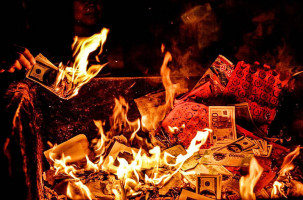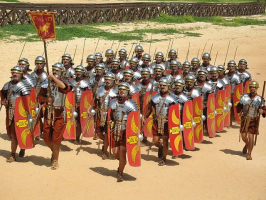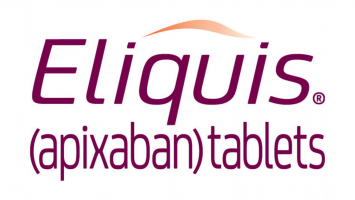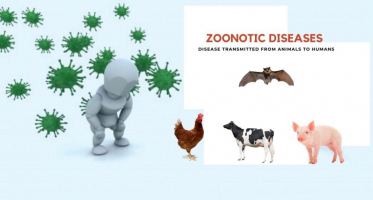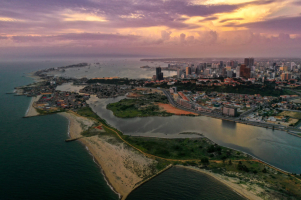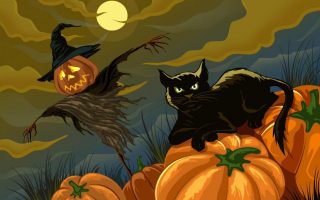Top 3 Things to Know about Vu Lan Festival in Vietnam
The seventh lunar month is a busy period for many Vietnamese because of two major events, the ghost festival and Vu Lan, a Buddhist event. In fact, both of ... read more...these significant dates fall on the 15th of the month. This guide will focus on providing information about the Vietnam Vu Lan Festival. Vu Lan, Yulanpen, Hungry Ghost, Trung Nguyen, Parents' Day, or Vietnamese Mother's Day - there are numerous names for this holiday, which takes place in Vietnam on the 15th day of the seventh lunar month. This ancient celebration, whatever you call it, is centered on the principles of compassion, gratitude, duty, kindness, and filial devotion. After Tet, it is Vietnam's second-largest annual traditional holiday (the lunar new year celebration). Read Toplist's article on things to know about Vu Lan Festival in Vietnam to know more about Vietnamese culture.
-
Many people in East and Southeast Asia, including those in China, Indonesia, Japan, Korea, Malaysia, Singapore, and of course Vietnam, observe this Taoist and Buddhist event. According to legend, the gates of hell open on Vu Lan Day for a lunar month (or 24 hours, depending on the version of the story), during which time the tormented souls wander the earth and visit their previous homes.
For the Vu Lan Festival, every culture and even individual families have their own customs and rites, but the main focus is always on meetings of family members to pay respect to the dead and to show love and thanks. Families in Vietnam extend invitations to their ancestors and provide them with food, incense, prayers, and other gifts. For the lost people who have no family left, food and thoughts are provided. Additionally asked for are the wellbeing and happiness of the living.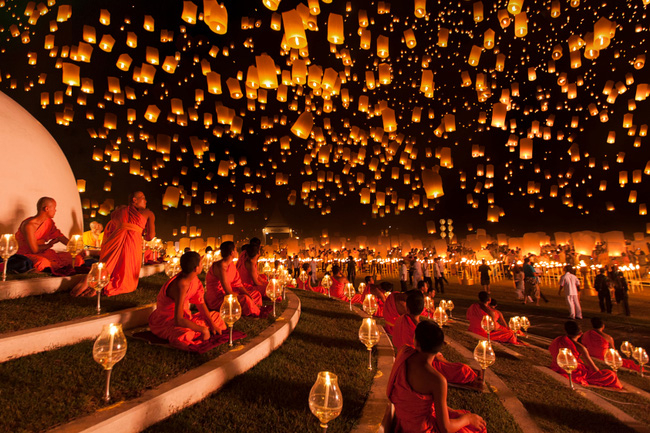
Vietnam Television (VTV) - VTV.vn 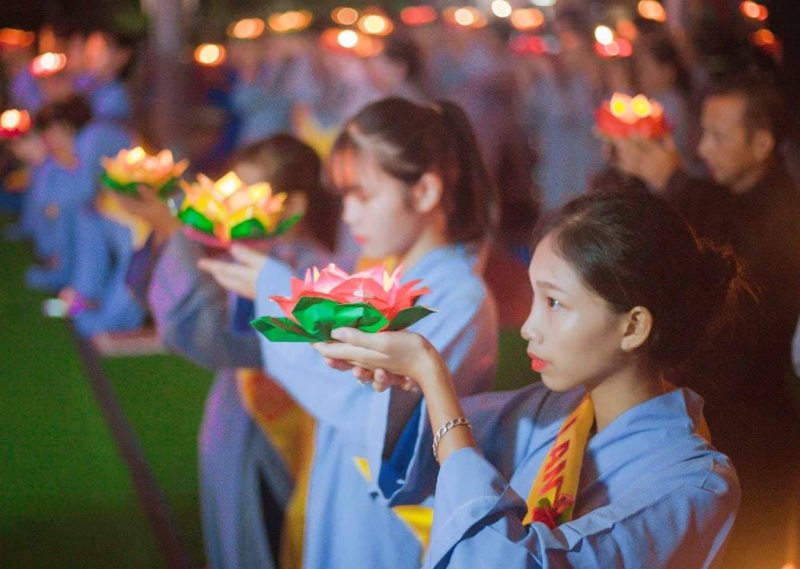
Vu Lan Festival in La Duong Pagoda - Đạo Phật Ngày Nay -
'Vu Lan' is a Sanskrit-Han transcription of the Ullambana Sutra, also known as the Filial Piety Sutra. The original Sanskrit phrase, Ullambana, means to hang upside down, symbolizing the tremendous anguish souls endure in hell to atone for their evil conduct in their previous existence on earth.
The legend of Maudgalyayana is recorded in the Ullambana Sutra (or Muc Kien Lien in Vietnamese). Muc Kien Lien was one of Shakyamuni Buddha's famous pupils who attained higher understanding. During one of his meditations, he realizes that his mother is suffering the torments of hell - she was reborn as a hungry ghost for her bad acts. Muc Lien Lien mustered all of his spiritual skills to create her a dish of rice since she was hungry. Unfortunately, it burned to ash before his mother could consume it.
Back in the mortal world, Maudgalyayana requests that the Buddha assist him in fulfilling his filial obligation, which is a central tenet of Buddhism. The combined spiritual merits of their prayers and offerings were conveyed to the deceased parents after Buddha advised Maudgalyayana to organize a gathering of monks. Muc Kien Lien's mother, as well as countless other spirits, were liberated as a result of their united efforts. This day also occurred to be the seventh of the lunar month.
Others who want to honor their parents, particularly their mothers, and ease their pain can follow Maudgalyayana's example. Since then, Buddhists all over the world including in Vietnam have celebrated Vu Lan Festival during the seventh month of the lunar calendar.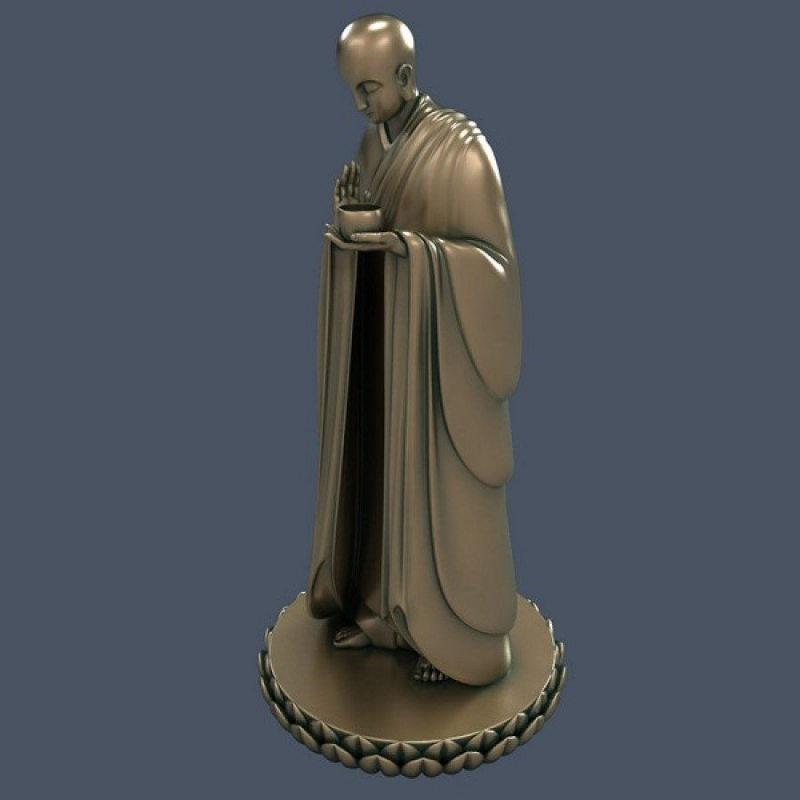
Status of Muc Kien Lien - vietnamisawesome.com 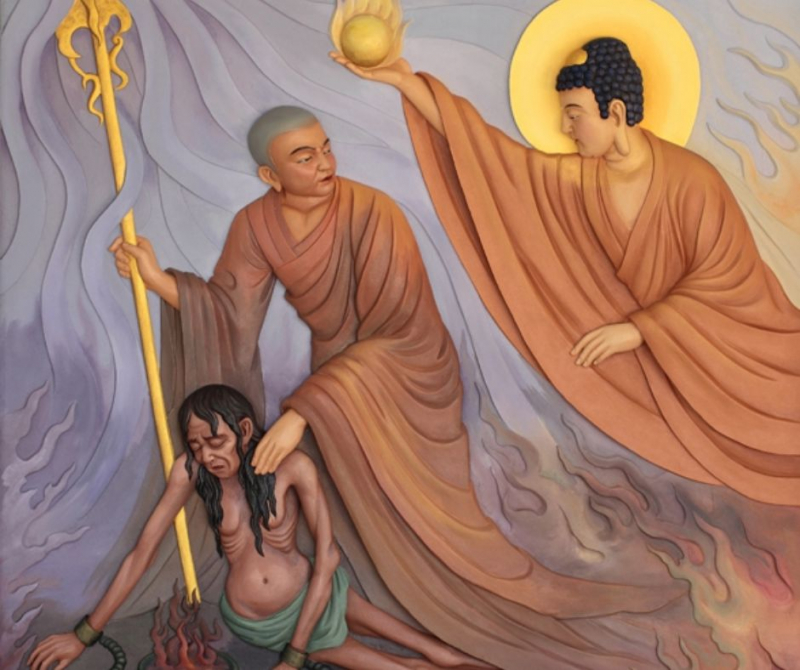
Maudgalyayana Rescuing His Mother - Lotus Happiness -
Whether you are a Buddhist or not, Vu Lan Festival has become a day to honor your parents and ancestors, as well as a reason to meet as a family and spend time together.
There are several ceremonies to be performed at home, at pagodas, at the cemetery of their forefathers, and at night for the Vietnamese people who practice more traditional forms of celebration.
Ceremonies At Home
A platter laden with fruits, snacks, and foods is placed on the family's ancestral altar at home on the morning of the seventh lunar month celebration. To welcome ancestors back home to enjoy the event with family, incense is burned. The living family will meet to pray and have lunch together, which is usually vegetarian.
Ceremonies At the Pagodas
Pagodas all around the nation are bustling with activity on Vu Lan Festival as Buddhist monks, nuns, and devotees come to pray. Dieu Phap, Hoang Phap, and Vinh Nghiem are three of the most well-liked places of worship in Ho Chi Minh City.
For tourists, the temples frequently conduct a "rose on the shirt" ceremony. If their mother is still alive, a red rose is worn; if she has passed away, a white rose is worn. The rose flower has come to represent love and community among people.Along with prayers, the Vietnamese often thank their ancestors by giving them gifts such as flowers, fruits, joss paper, sticky rice cakes, and snacks. In the expectation that their loved ones will be able to enjoy these possessions in the hereafter, many people donate phony currency and paper replicas of opulent objects, such as clothing, bags, air conditioners, even villas, and cars.
The monks frequently give lectures to guests in which they counsel those present on their duties to their parents as children and how to honor them regardless of whether they are still alive or have died away.
During the Vu Lan Festival, foreigners are also welcome to visit the temples and take part in the festivities.Visiting Cemeteries
During the Vu Lan Festival, some people would also visit their ancestors' graves. The graves will be cleaned and maintained as part of the event, and people will pray and present gifts to the deceased.
Ceremonies At Night
A lantern-releasing event takes place along the rivers in several parts of the country, most notably in Hoi An. These lanterns are designed to look like lotus blossoms.
Once lighted, the Vietnamese make wishes for their parents and release the lanterns into the river, believing that the steam from the river will carry the wishes made with it. It's a fantastically dazzling sight to behold.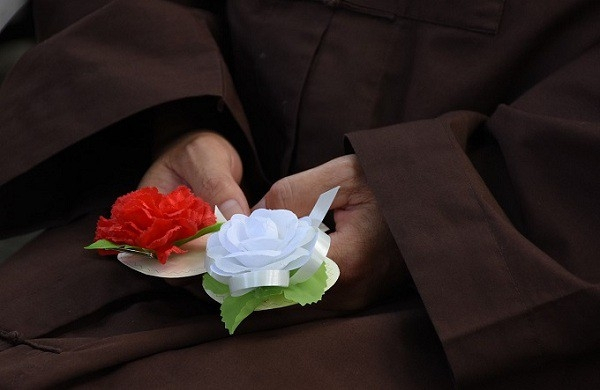
Red and white roses at Vu Lan festival - Internet Journey On Air





